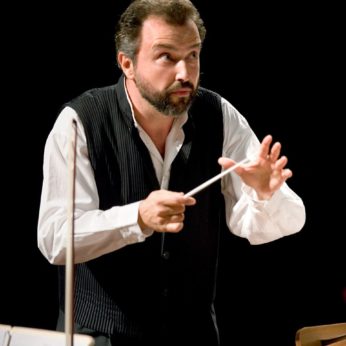Composer: Mieczyslaw Weinberg (b. 1919 - d. 1996)
Performance date: 01/07/2015
Venue: Bantry Library
Composition Year: 1945
Duration: 00:32:10
Recording Engineer: Richard McCullough, RTÉ lyric fm
Instrumentation: vn, vc, pf
Instrumentation Category:Trio
Artists:
Alexander Melnikov -
[piano]
David Cohen -
[cello]
Dmitri Sitovetsky -
[violin]

The
music of Mieczyslaw Weinberg has featured regularly in our programmes so many
of you will be aware of his extraordinary story. He came from a Jewish musical
family in Warsaw in the newly independent Poland; he showed prodigious talent
as a pianist at an early age and was accepted by the Warsaw Conservatoire when
he was only 12. Intriguingly he was offered a chance to continue his studies in
America but he put off the journey until too late. Instead he was driven East
by the Nazi invasion in 1939, his parents sending him away with his sister,
who, tragically, turned back and died with their parents.
After
this Weinberg seemed to lead a charmed life. He made it to Red Army lines and
went on to Minsk to continue his studies. His diploma concert took place the
day before the German invasion of the Soviet Union. Mercifully Weinberg was
considered unfit for military service due to his spinal deformation and was
evacuated to Tashkent in faraway Uzbekistan, where he met and married Natalia
Vovsi-Mikhoels, daughter of the famous actor Solomon Mikhoels. In 1943 he was
called to Moscow by Shostakovich, who had been impressed by the score of
Weinberg’s First Symphony, and remained there for the rest of his long life.
The
Trio dates from 1945 just after this momentous period in Weinberg’s life and is
dedicated to his wife Natalia. Shostakovich’s famous Second Piano Trio dates
from the previous year and the similarity in their styles is obvious, both attempting
a musical chronicle of the dramatic times they were living through. The
similarity is most obvious in the pounding, ostinato-driven
second movement. The Präludium opens with monstrous chords announcing
momentous and terrible events, the tension driven even harder by the violin’s
impossibly high-lying theme. This gradually winds down and the gentle if edgy Aria is introduced that eventually
drifts quietly into the renewed tensions of the wild marcato Toccata, a movement driven by biting strings and a
hard-edged, angular piano that makes even some of Shostakovich’s Scherzos seem quite restrained.
The
Poem opens with solo piano in the
same vein until the music sinks to a strange duo of pizzicato violin with arco
cello, before the full trio take up the sad tune. This gradually increases in
intensity before slowly returning to the quiet string duo with roles reversed.
The extraordinary Finale is outwardly
a theme and variations but it somehow incorporates a full fugue (begun by the
cello), a toccata and, finally, a recapitulation of the opening Präludium and Arie, that winds down to a moving lyricism that surely recalls the
dedicatee. A hushed coda follows with solemn piano chords and floating strings
leading to an elegiac diminuendo.
Copyright © 2025 West Cork Music. All rights reserved.
Designed and developed by Matrix Internet